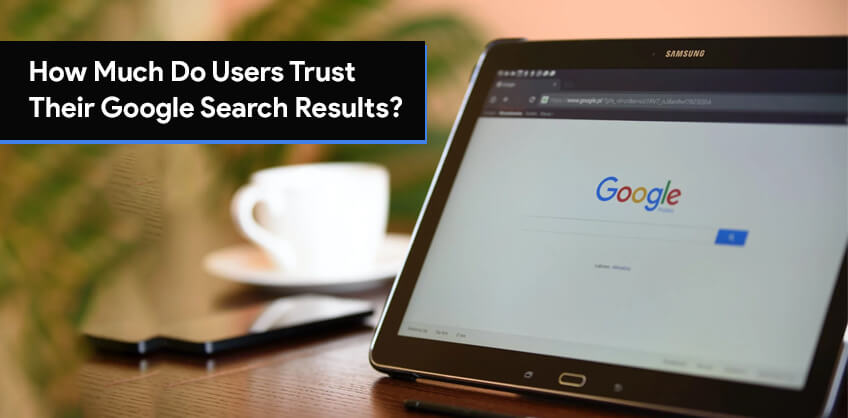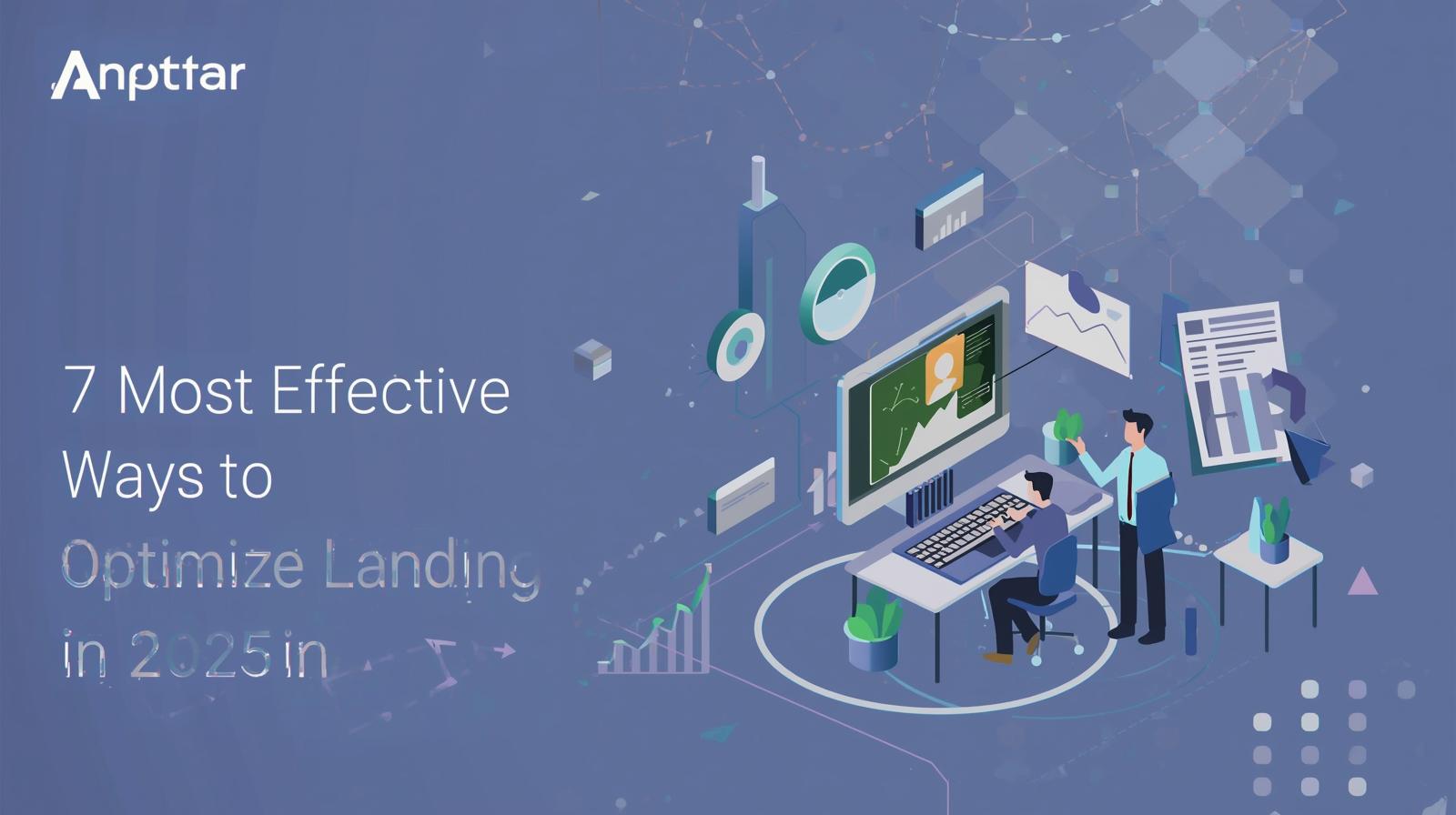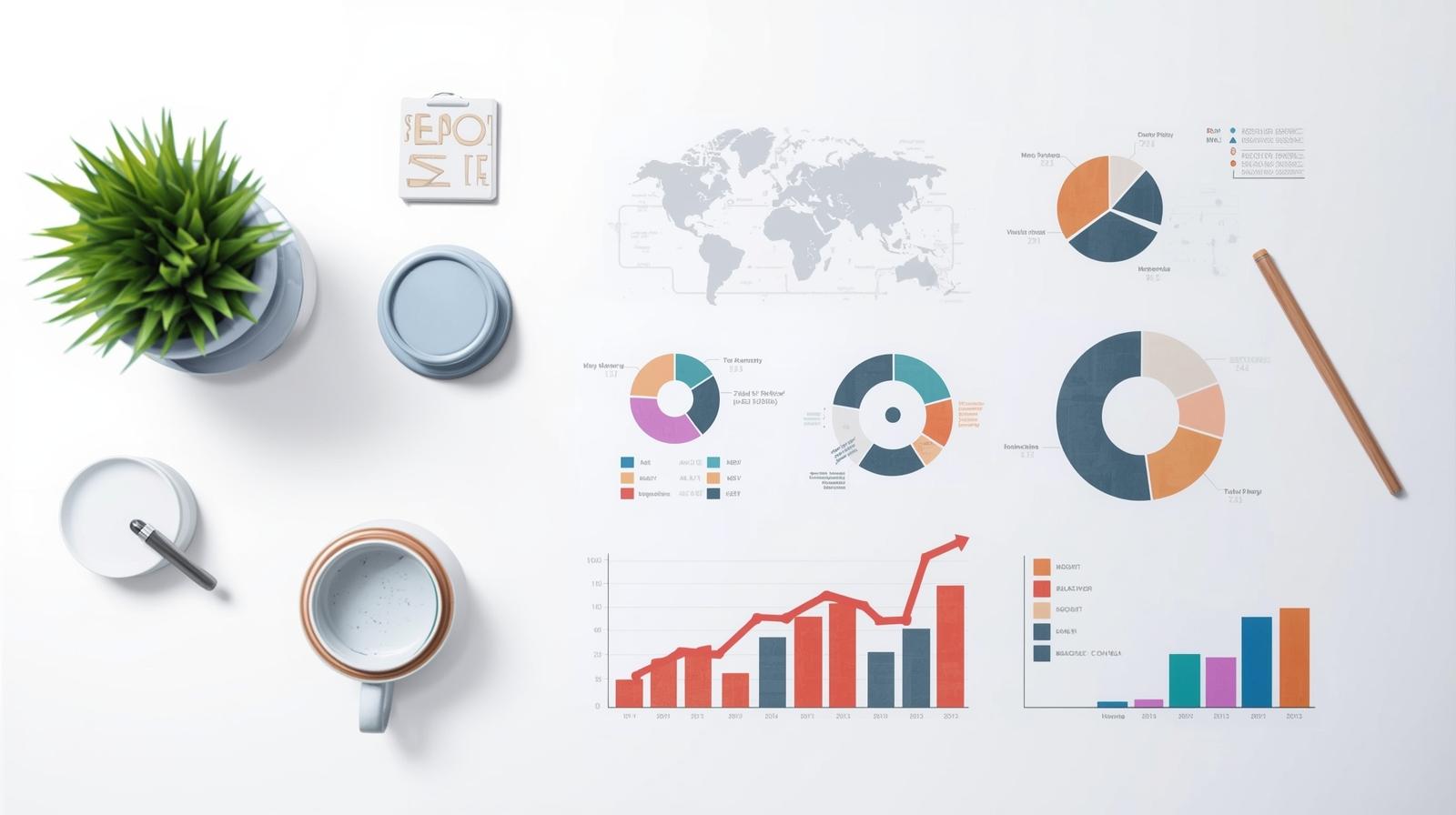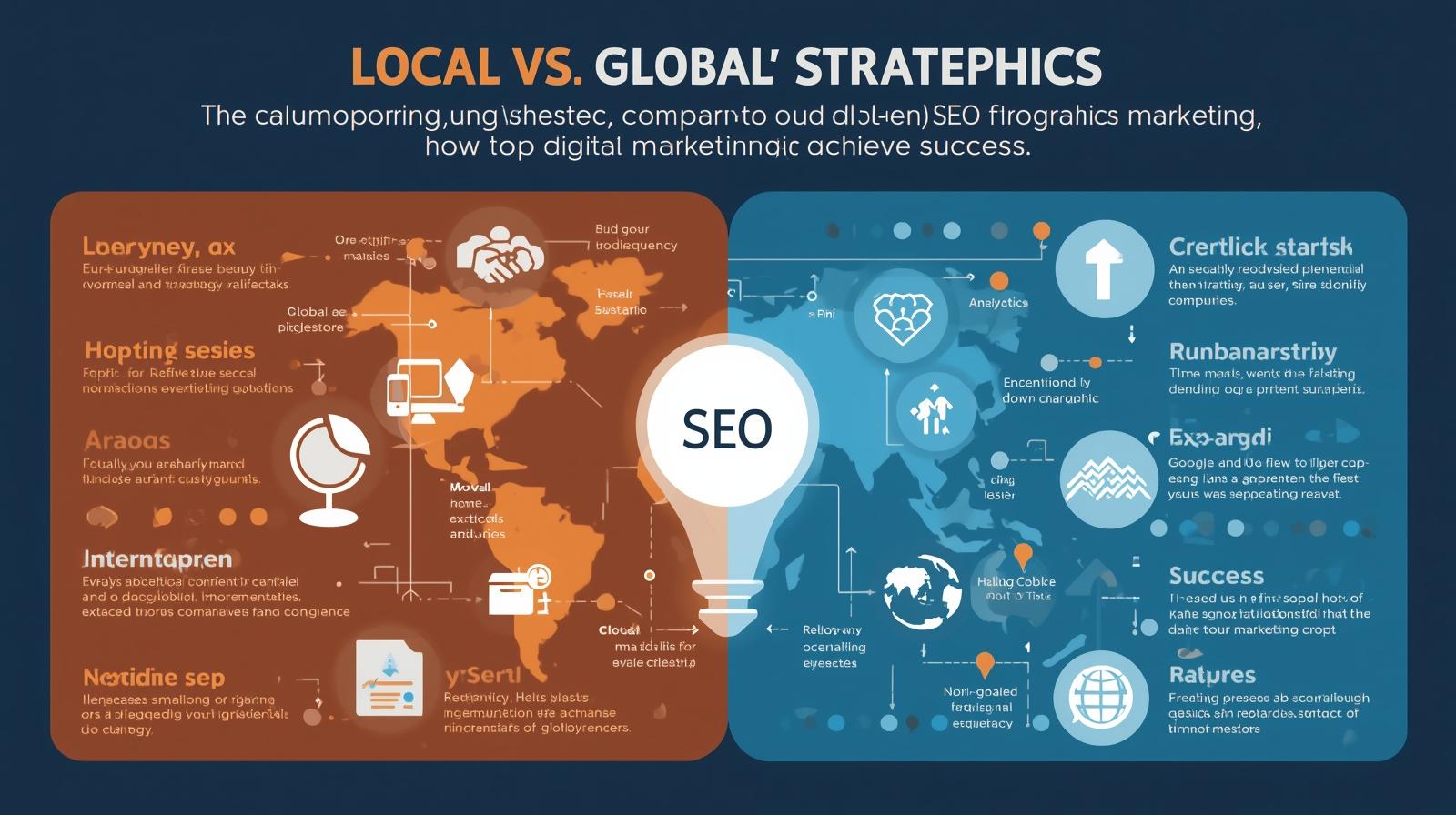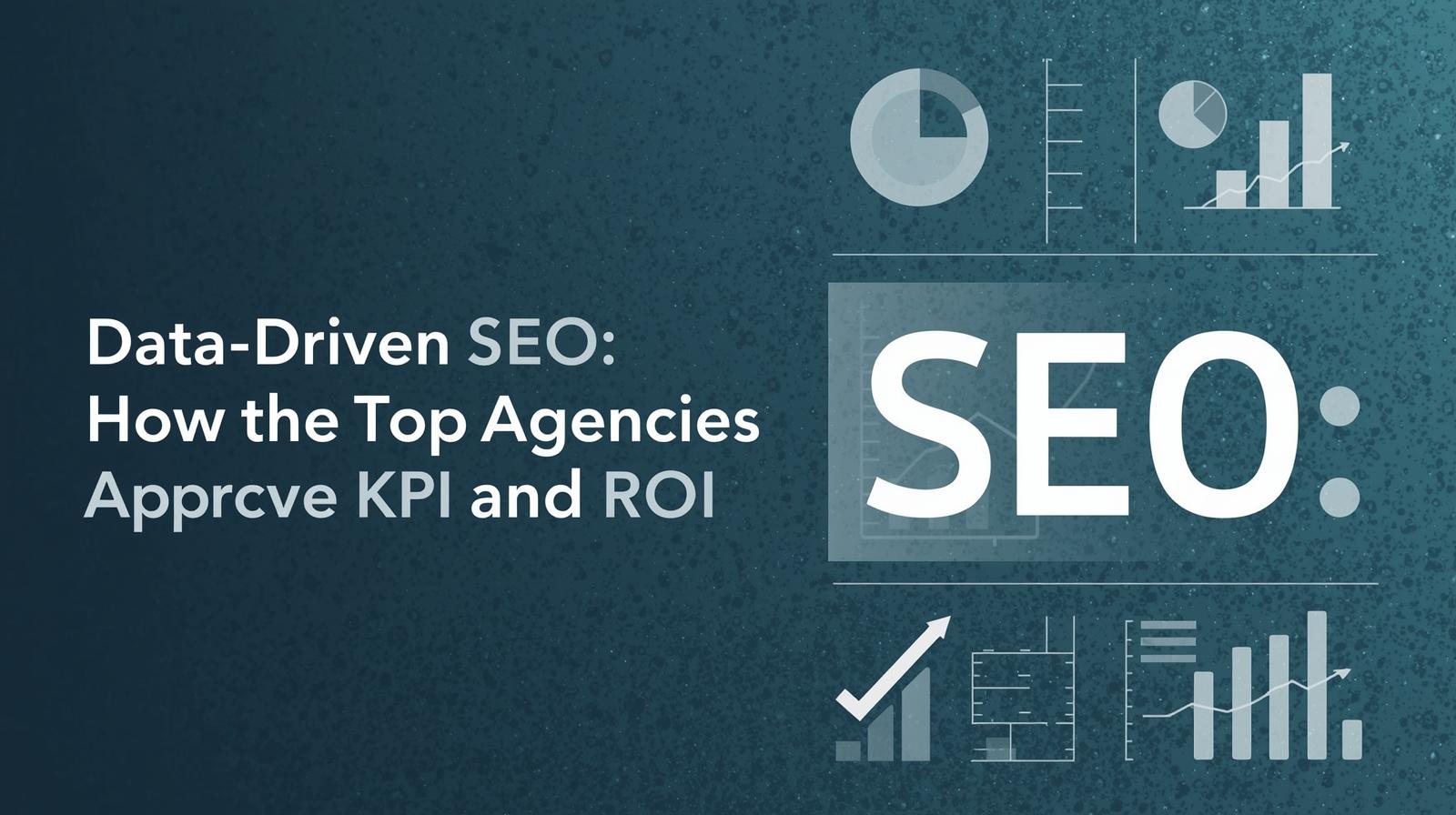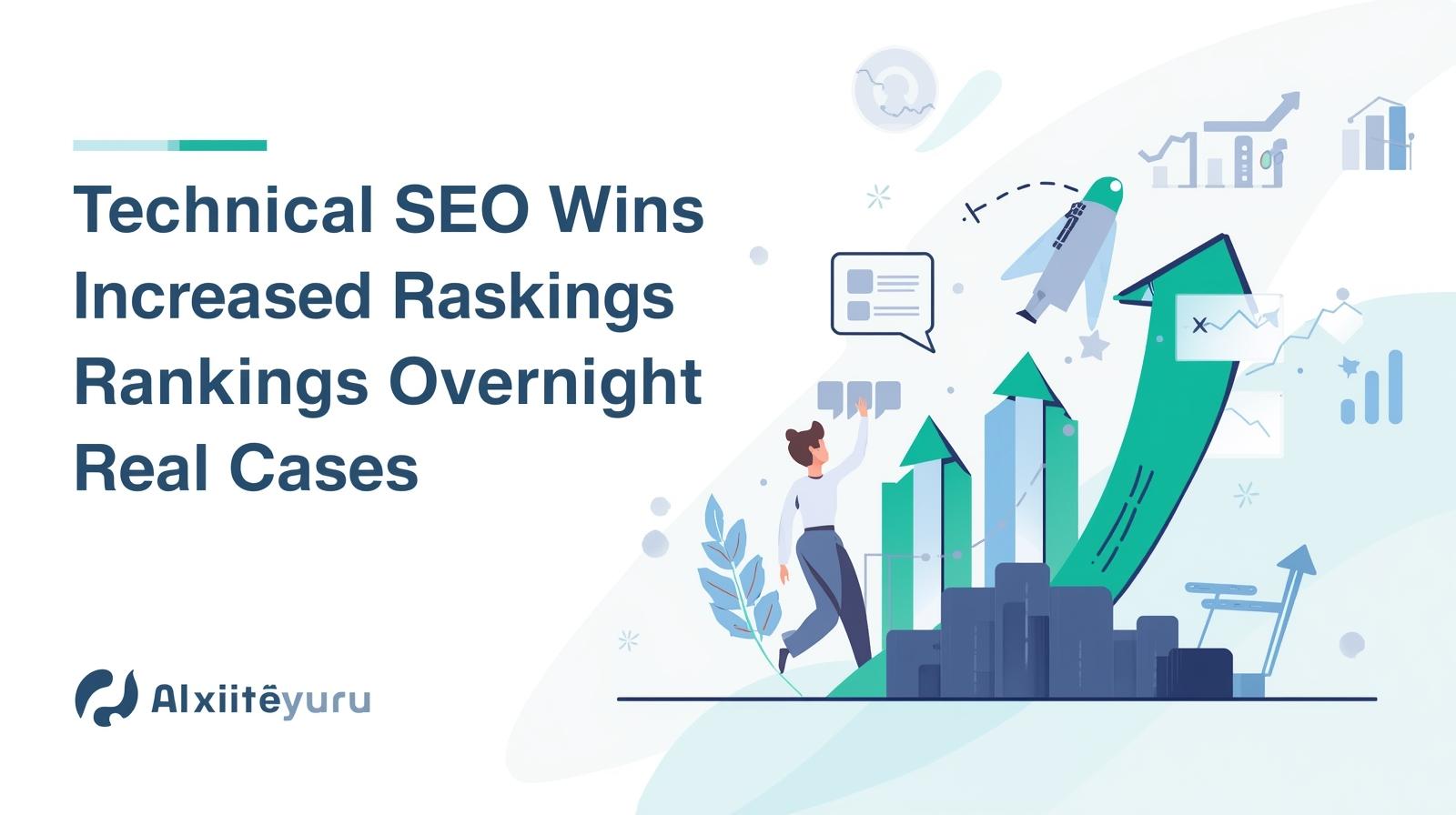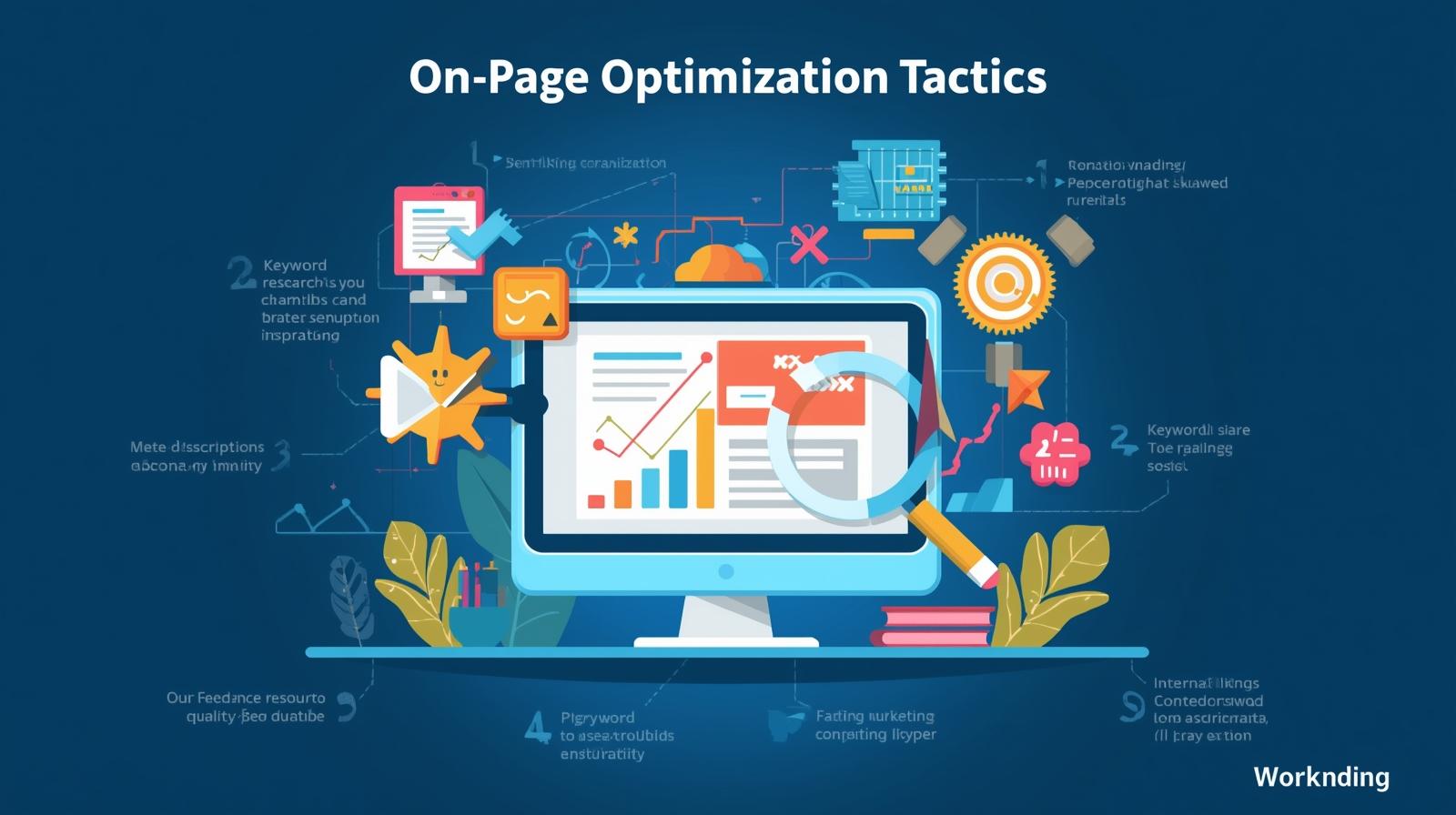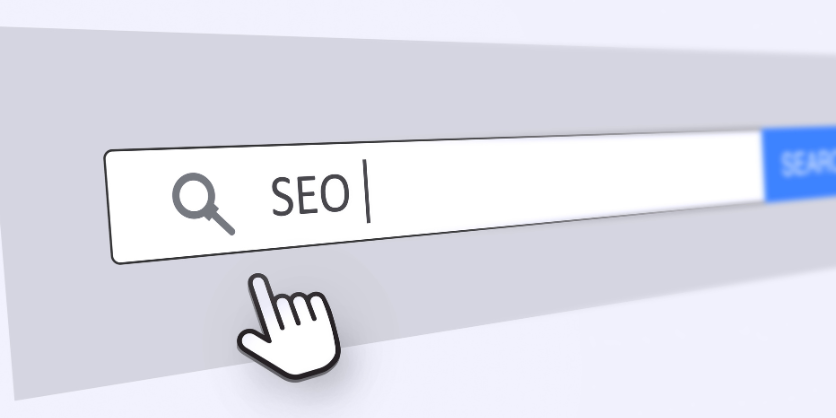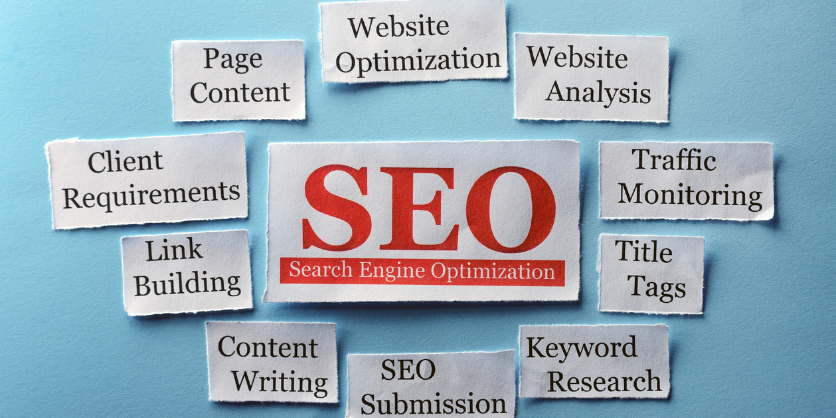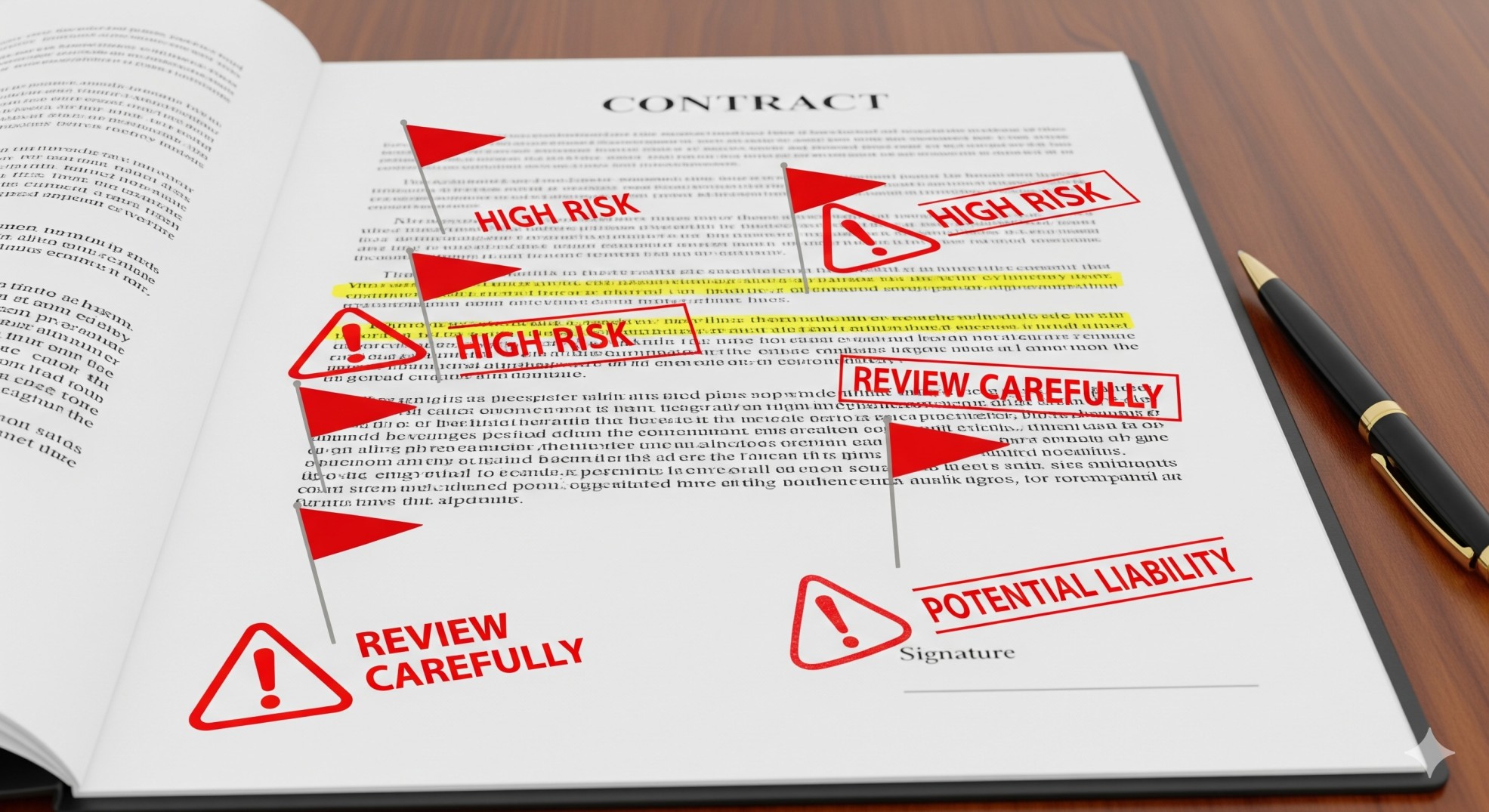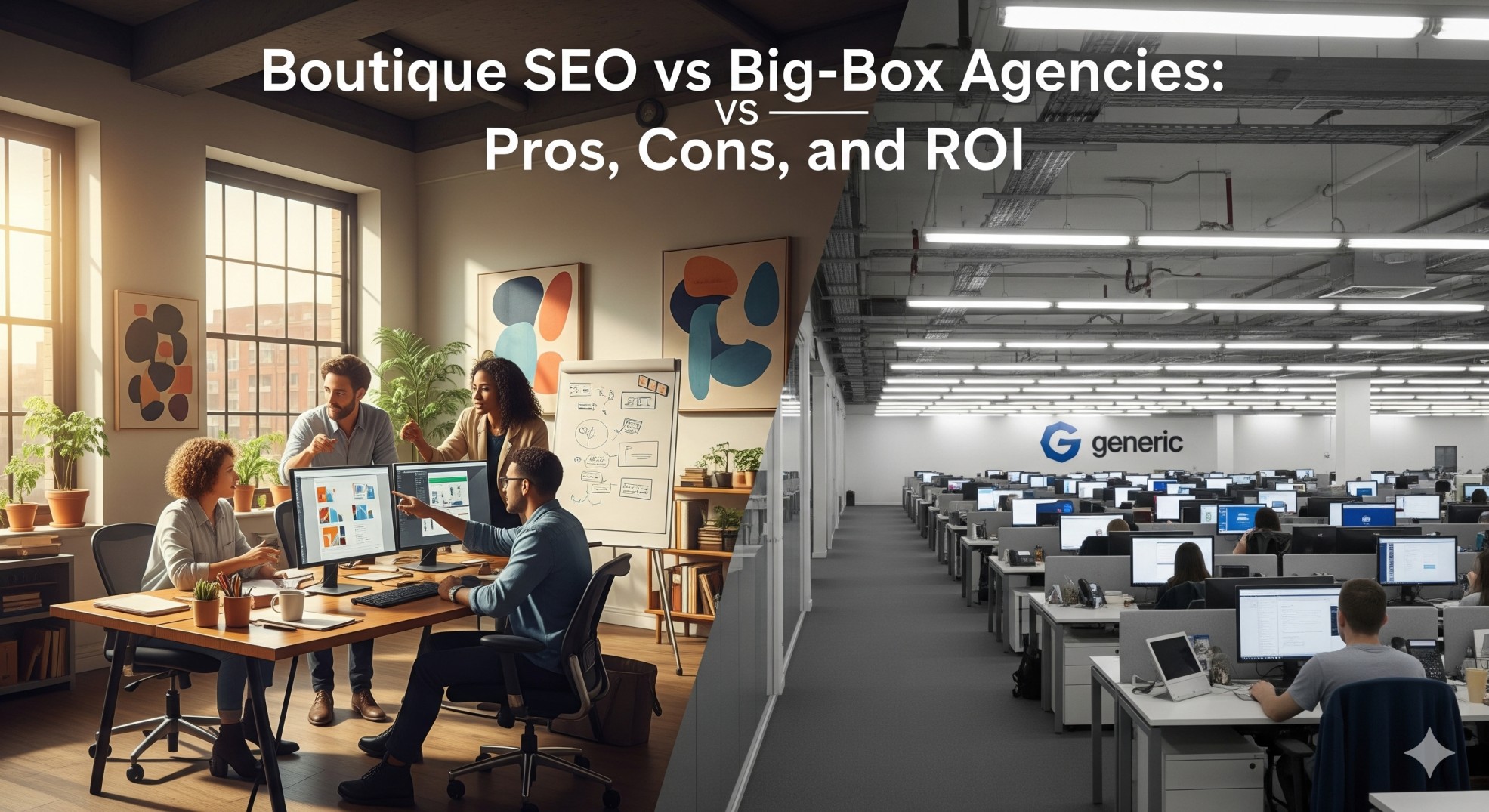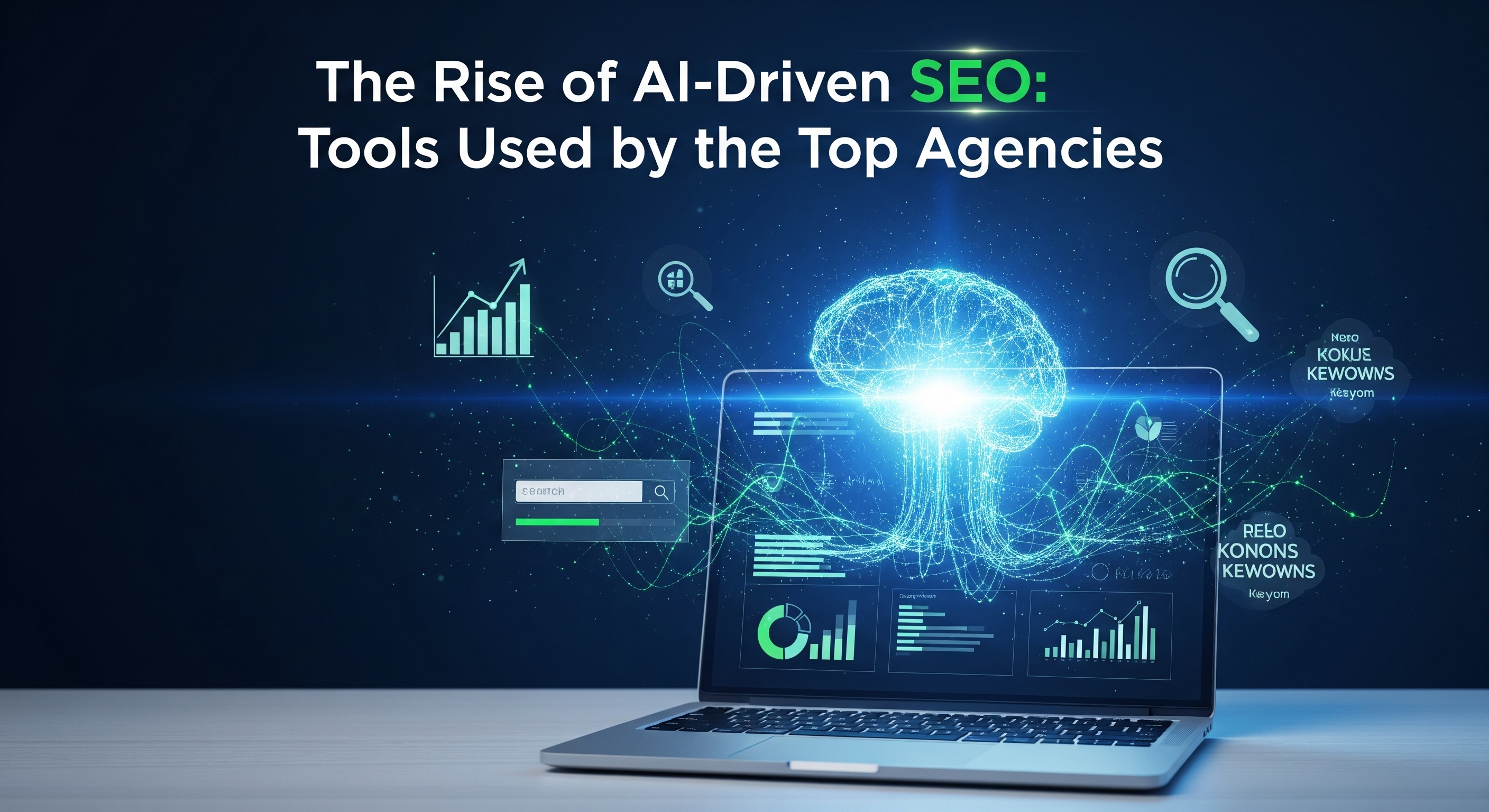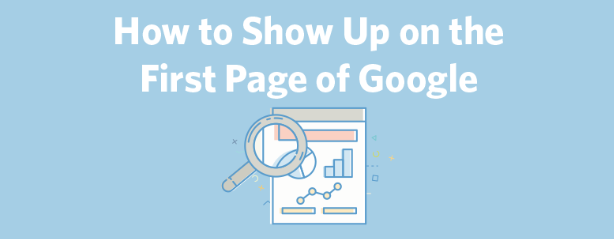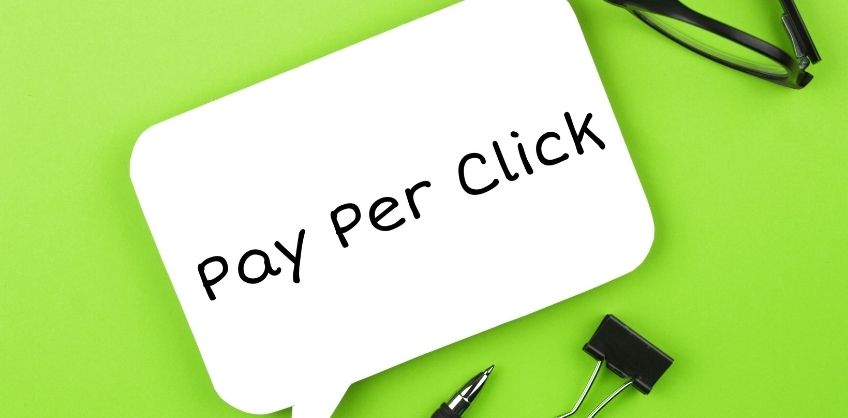March 23, 2020
While Google's aim has consistently been to surface top-notch content, in the course of recent years the organization has endeavored to guarantee that the search results that it displays are additionally reliably precise, sound, and dependable. Reducing bogus and misleading data has been a top priority for Google since the 2016 US presidential political race when the concerns over false information mounted. Google has been investing loads of cash and human intelligence for properly organizing the ever-growing data on the web in a manner that prioritizes precision and believability.
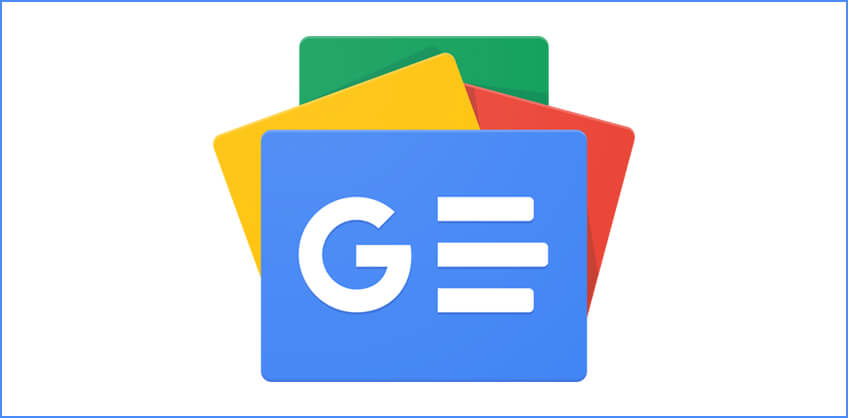
The whitepaper published by Google in February 2019 titled “How Google Fights Disinformation” explained what disinformation is and how it is tackled across Google Search and Google News. In this whitepaper, Google has given a detailed explanation as to how:
Quality matters for Google: The products from Google are designed in such a manner that they can sort out meaningful data that best meets the user’s needs. For this, Google makes sure to deliver superior quality information and commercial messages that are reliable especially under the conditions that are more prone to misinformation and rumors.
Google counteracts malicious actors: The white paper explains how algorithms cannot differentiate between a content based on current events that are true and content based on events that are false. The algorithms can also not judge the intentions of the creator by just simply reading what’s on the page. For instance, a news website that claims that “Reporting from Brighton, England” but in reality, the account activity shows that it is being operated out of Texas in the U.S, is likely not being honest with its users or providing them legit information. That’s why Google’s policies across the Youtube, Google News, and Google Search along with its advertising products outline prohibited and “spammy” behaviors such as misrepresentation of one’s ownership or the key purpose on Google’s advertising products or Google News, imitation of accounts or individuals on YouTube, etc.
It gives users more context: Varying set of perspectives and ease in access to the context are the key factors that play a major role in providing the users with the information they require to form their individual views. Google through its wide range of products and services exposes the people searching to numerous videos and useful links that eventually maximize their chance to stumble upon varying perspectives before they finally zero in on the final content that they wish to explore. In the whitepaper, Google has provided several mechanisms that have been developed for Google News, Google Search and YouTube in order to provide more context to the users.

After going through this said whitepaper, Google’s mission is clear: Tackle the propagation of false or misleading information and make its products as well as its services useful for the billions of users across the globe and its partners as well.
So, how do users feel about the information they encounter on the organic search results when they type the query?
Moz conducted a survey on around 1100 respondents out of which:
70% were from the United States
21% were from India
5% were from Europe
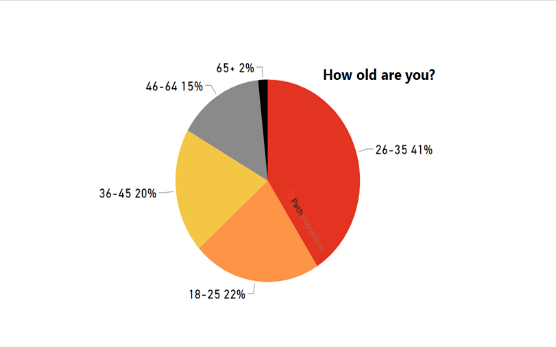
Source: Moz
Also, 63% of the respondents were from the age group 18-35 and 17% over the age of 46.
The findings pertained to the legal, political, financial and medical categories, the results of which are discussed in the sections below:
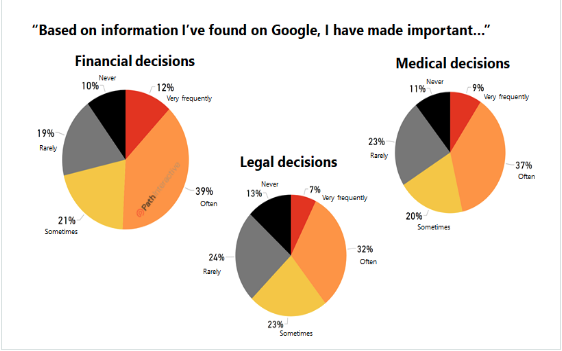
Source: Moz
Moz asked the respondents as to ‘how frequently they make decisions based on the search results that are delivered to them by Google’. Majority i.e. 51% of the users indicated that they “very frequently” or “more often” make life decisions purely on the basis of the information provided by the organic search results of Google, while 39% of the respondents make important legal decisions and 46% of the respondents of the survey make important medical decisions based on Google’s information. A mere 10-13% of the respondents indicated that they do not make any crucial life decisions based on the information provided by Google.
Medical Searches
For medical searches, around 72% of the respondents or the users ‘strongly agree’ or ‘agree’ with the statement that “Google has improved at showing me accurate results for medical searches over time.”
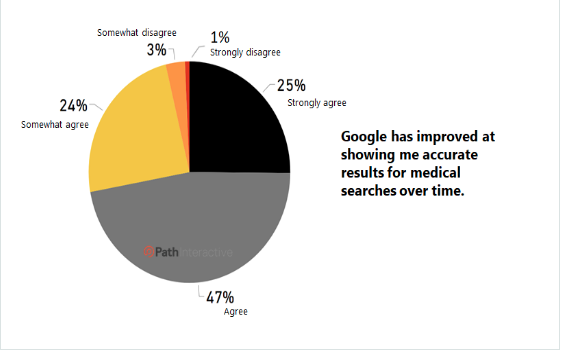
Source: Moz
The survey also brought out other results relating to the same, which are as follows:
The searchers in the age group 18-25 i.e. the young group are 94% more likely than the old people i.e. age 65+ to strongly believe that Google has improved its medical results over the period of time.
75% of the young searchers i.e. age group 18-25 agree or strongly agree that Google’s medical searches have significantly improved over time while only 54% of the people in the 65+ age group feel the same way for medical search results.
Searchers in the age group 46-64 are most likely to disagree that Google’s search results are improving over time.
Next Moz, wanted to ascertain whether the medical content from the trusted medical publications such as WebMD and the Mayo Clinic resonated with the users. To that 66% of the users agreed that it is very crucial for them that Google surfaces results from highly trusted sources such as WebMD and Mayo Clinic. However, 14% of the respondents indicated that they would rather not check results from the highly trusted websites and another 14% indicated that they would rather see more diverse medical results, including more natural medicine websites.
Also, a question to ascertain the trustworthiness of the symptom cards relating to the specific medical conditions was asked from the respondents which were as follows:
“When you Google a medical symptom and see a ‘symptom card’, how much do you trust the content from that card?”
To this, 76% i.e. the majority of the respondents indicated that they do trust or strongly trust the content as shown by the symptom cards that are surfaced directly within the search results. The young searchers i.e. who fall in the age bracket 18-25 are 138% more likely than the oldest searchers i.e. age 65+ to strongly trust the content displayed by the symptom cards.
News and Political Searches
For news and political searches, the majority of the respondents or users i.e. 61% ‘strongly agree’ or ‘agree’ with the statement that “Google has improved at showing me high-quality, trustworthy news and political content over time.”
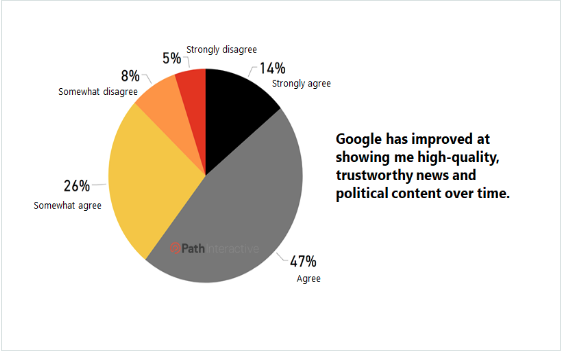
Source: Moz
The young searchers that fall in the age bracket 18-25 are 250% more likely than the old searchers i.e. age 65+ to strongly agree that the news and political content is improving over time, in terms of quality.
Since Google has laid a lot of emphasis over the years to combat misinformation while surfacing the search results, Moz also asked the respondents the following question:
“How often do you feel that you find dangerous or highly untrustworthy information (AKA “misinformation”) in Google’s results?
A vast majority of the respondents i.e. 70% indicated that they have encountered misinformation in Google's search results at least sometimes while 29% of the users indicated that they haven’t encountered any misinformation or have rarely seen it.
The responses have also suggested the fact that older the searcher is, it is more likely that they have encountered misinformation in search results of Google. Old searchers i.e. age 65+ are 138% more likely than the young searchers who fall within the age bracket 18-25 to say that they have encountered misinformation frequently or very frequently.
Therefore, from the responses to questions relating to topics such as news, health, and politics, a pattern was observed as per the results analyzed by Moz. It was observed that the young searchers show more trust in the content that is displayed by Google for the search queries, in comparison to the old searchers who are much more skeptical. They don’t take much of the content based on its face value, rather they browse deeper to have an in-depth view of the organic results that are displayed by Google in response to their search queries.
Featured Snippets and the Knowledge Graph
Moz also wanted to enquire about the respondents regarding the trustworthiness of the content contained with the Featured Snippets.
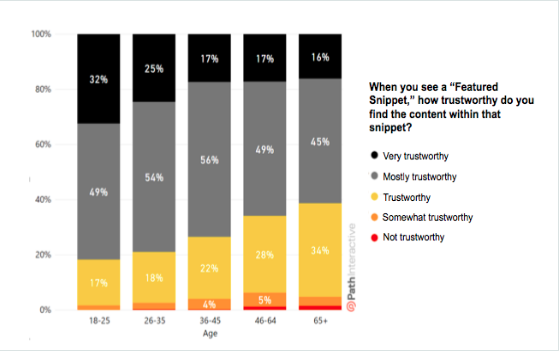
Source: Moz
As per the results, the young group i.e. searchers in the age bracket 18-25 are 100% more likely to find the content as contained within the featured snippets as trustworthy in comparison to the oldest searchers i.e. age 65+.
Conclusion:
In general, the majority of the respondents indicated trust in Google's search results and the information that they find on Google. They also find features such as the Knowledge Panel and Featured Snippets useful and trustworthy. In all the questions that were asked, there was a clear pattern that the young searchers tend to trust Google's search results more than the oldest searchers. Now the question that remains is: Will searchers as a whole will become less skeptical of online search results and information over time? Time will tell!
Author Bio: 10SEOs ranks top SEO Firms across the world and provide trusted reviews so that the users can explore the best SEO Firms across the globe with ease. The ratings are provided based on a tested methodology so that the users can look for SEO providers that have a proven track record and work experience.

Recent Posts
ARE YOU A LEADING SEO SERVICE PROVIDER?
Get listed in world's largest SEO directory today!
Directory listing counter is continuously increasing, be a part of it to gain the advantages, 10266 Companies are already listed.

